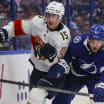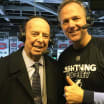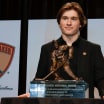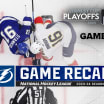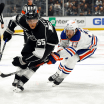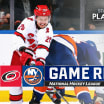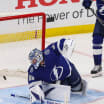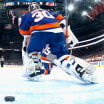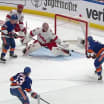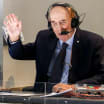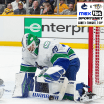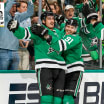The Coaches Room is a regular feature throughout the 2022-23 regular season by former NHL coaches and assistant who will turn their critical gaze to the game and explain it through the lens of a teacher. Marc Crawford, Mark Recchi and Phil Housley will take turns providing insight.
In this edition, Crawford, coach of the Quebec Nordiques (1994-95), Colorado Avalanche (1995-98), Vancouver Canucks (1998-2006), Los Angeles Kings (2006-08) and Dallas Stars (2009-11); associate coach of the Ottawa Senators from 2016-19; assistant coach of the Chicago Blackhawks from 2019-22; and currently coach of ZSC of the National League in Switzerland talks about how trades, or the possibility of them, impact teams and individuals.
NHL Trade Deadline difficult time for players, coaches, GMs
Crawford says 'you feel for people' but must continue to do your job
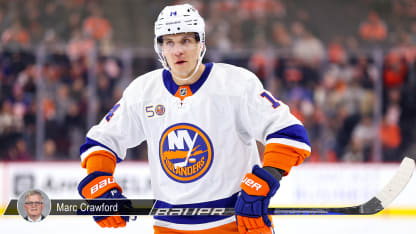
By
Marc Crawford / Special to NHL.com
When there's talk of trades or when they start happening, those things are always awkward. And when you're on the inside and seeing it happening, you feel for people.
You know the emotions the players, coaches and managers are going through regarding trades. It is a people's sport and you can never forget that. As hard as it may seem, it pales in comparison to how it really is. It's intense, and those feelings are absolutely heart-wrenching. But that's pro sports. If it wasn't that hard, then I don't think it would be as dramatic and the prices wouldn't be as high because it would be commonplace, and it's anything but that when you trade special people.
The New York Islanders this year did a good job of making that big change early when they acquired Bo Horvat. It gives you that player for longer, and it always takes people time to get used to any big change. Let's face it: a trade is a big change in the personal life of a player and his family and the more time you can give him to get adjusted and to play well, the better it is. The year we won the Stanley Cup [with the Avalanche in 1995-96], we made our big trade in December for Patrick Roy and Mike Keane. That was the absolute big piece.
The 2018-19 season with the Ottawa Senators was crazy. General manager Pierre Dorion knew he was going to make trades, so he took guys out of the lineup. Now we're dealing with those guys getting sat out in games and that's always tough. Your team is decimated by the fact that, they know the shoe is going to fall and on the second part of it, I think it's really tough for the player because they're caught between being loyal to friends and be great for their teammates.
What will Horvat's impact be on the Islanders?
Every player thinks he's the best teammate in the world and for the most part they are. You can't play this game without having a closeness, especially when you get to the end of the year. You've been battling with these guys for the better part of five months. And for most of them it's years and years. For Mark Stone, it was seven or eight years (with Ottawa) and it tore him apart to have to make the decision he was making. I'm sure it was the same for Pierre Dorion. But I know from the team's standpoint, it was just such an awkward feeling.
I always appreciated Mark Stone for his professionalism at that time. He carried himself so well and it was an extremely difficult time for him to have to make that decision that he was going to move on. I'm sure Ottawa would've loved to have kept him, but they recognized they couldn't let him go for nothing and they had to get as much as they could for him while he was still in their possession.
There are always levels of difficulty in the decisions. I've been on both sides of it where the players have been there for 10 days and then been moved. That doesn't seem to be as difficult; maybe the trade before that was difficult for that player. But for players who have been there a long time, they've sweat blood and tears for your group, you feel when those are the ones who are moved.
My favorite story about the trade deadline is Dave Hannan, the year we won the Stanley Cup with the Colorado Avalanche in 1996. Joel Quenneville and myself, we talked to (general manager) Pierre Lecroix about not trading Mike Ricci. We ended up, at the last minute, picking up Dave Hannan because we felt we needed one more penalty killer. The first night we played after the deadline, Dave came into the lineup against Detroit and was a minus-4. But he ended up being a super acquisition for us. He did absolutely everything we asked of him and he was a big part of why we won. He was just that perfect little piece we needed and played a specific role and really did something very, very well.
So, it was two-fold on keeping a key player and getting a key player. Mike Ricci was so important for us during that Cup run. He ended up being our fifth leading scorer in the Stanley Cup Playoffs. He still had a lot of game left and he was so popular on our team that I think, looking back, we may not have had the run we had without Mike Ricci. Those things, they stick in your memory.
When it comes to making the right moves for your team, you have to listen to your pro scouts. From a coaching standpoint, you know the players when you play them, but you don't see them on a regular basis the way pro scouts do.
My dad was a scout, so he always said, 'the scouts are the guys driving in the winter storms.' He really dramatized the life of a scout but he was right. They're hearing the stuff about those players. This year at the start of the year when I was in all those buildings, you see the same scouts. It always amazed me how much they knew in their area of people, and that's something the regular fan wouldn't know. Those pro scouts, they're assigned a district, they have anywhere from probably 8-12 teams that they know everything about and they're the guys who, you have to trust their opinion. The good general managers will tell you that all the time, that a great pro scout is worth his weight in gold, not only for what the teams bring in and the good trades they make, but sometimes it's the trades they don't make because they know things to the Nth degree about players.
You hope you're in a position all the time to be a buyer at the trade deadline. That's what you want because it means you're in it, it means you're close, it means you're maybe looking for that little extra piece that fits perfectly like the Dave Hannan. That's the wish. You want to be that rather than the scenario we were in in Ottawa, where you were trying to recoup and rebuild for the group that was going to be ahead.
